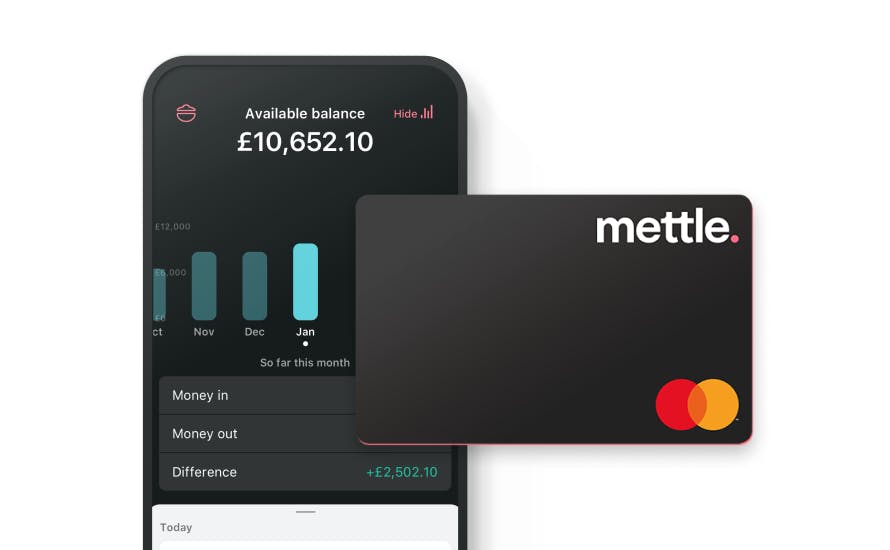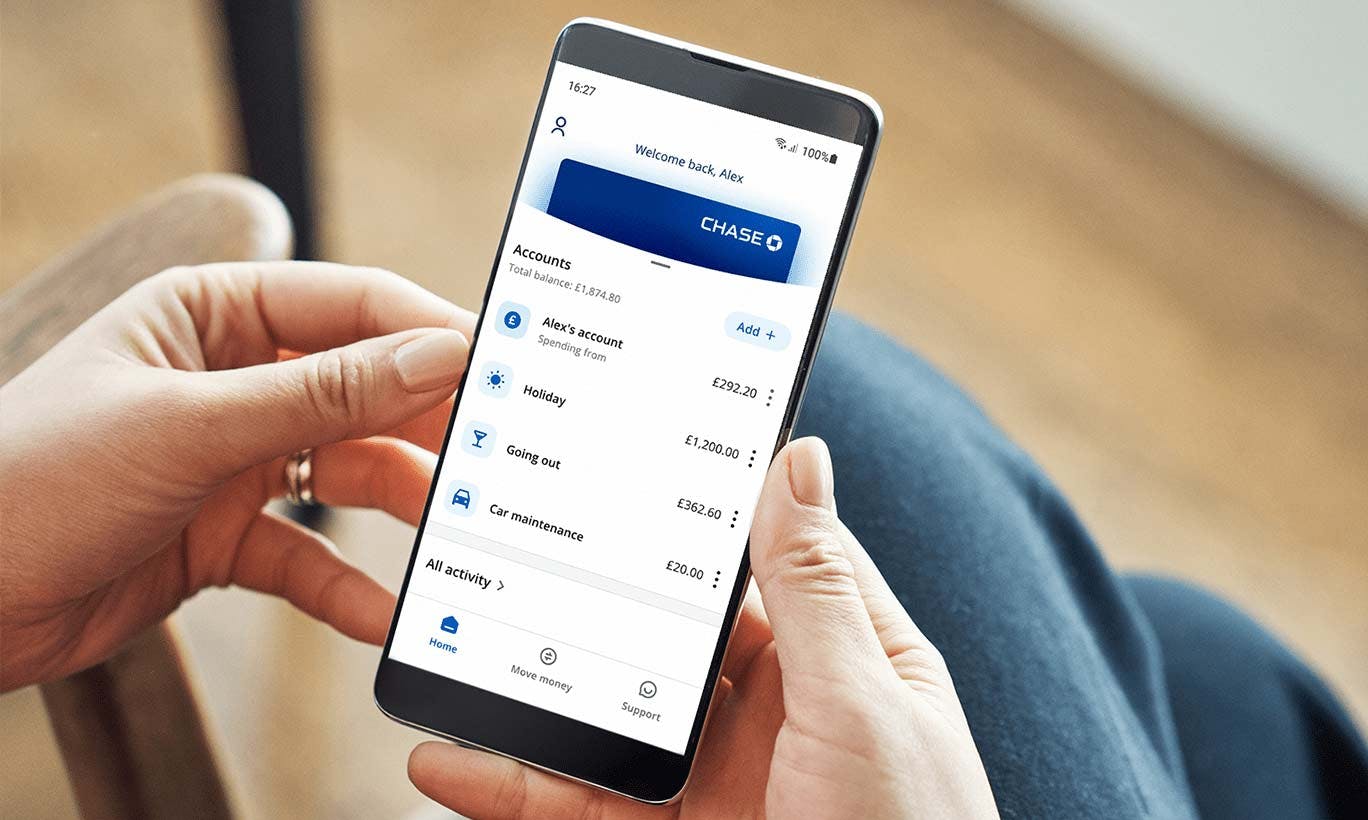How to Set Up a Company in the UK in 2022

Jarrod Suda
Guide

A writer and editor at Monito, Jarrod is passionate about helping people apply today’s powerful finance technologies to their lives. He brings his background in international affairs and his experiences living in Japan to provide readers with comprehensive information that also acknowledges the local context.
Byron Mühlberg
Reviewer
.jpg?auto=compress,format&rect=0,0,1629,1629&w=120&h=120)
Monito's Managing Editor, Byron has spent several years writing extensively about financial- and migration-related topics.
Links on this page, including products and brands featured on ‘Sponsored’ content, may earn us an affiliate commission. This does not affect the opinions and recommendations of our editors.
Read moreWith its long history of entrepreneurship, the United Kingdom continues to promote and support the millions of small business owners, freelancers, and corporations who operate in the country today. However, navigating the legal and administrative system for the first time can feel intimidating.
We’re here to streamline the research so that you can crack on submitting the right documents for your unique situation. This guide will break down the administrative steps in an easy-to-follow order to set up (‘incorporate’) your company so that you can focus more of your time on doing what you love - developing your business.
Monito's Recommendation
If you are a foreigner who wants to set up a company in the UK while overseas, we recommend that you work with an administrative formation service on this approved list, such as Tide, to provide you with their domestic UK address to use as your company’s Registered Address.
What You Need Before Setting Up Your Company in the UK
You may have an exciting new idea that’s going to disrupt an entire industry or you may be dreaming of finally opening up that family-owned storefront. Before embarking on the tedious process of filling out paperwork and legally incorporating a company in the UK, first check that you meet the country’s requirements.
Before starting the incorporation process, you will need:
- The Director’s service address: Most business types, like “private limited companies”, will require one director to be appointed. This person must submit their address, which will appear on public record. It can be located anywhere in the world and any legal document addressed to the director(s) will be sent to this address.
- An address in the United Kingdom for the company: Also known as the Registered Address, this address must be in the United Kingdom. It will appear on the public register. Documents that the UK’s registrar of companies (Companies House) and the country’s tax agency (HMRC) are required to send will be postmarked to this address.
What is not required:
- UK Residency: It is not a legal requirement to have a director or shareholder reside in the UK to set up a company. However, many banks in the UK will want your directors or shareholders to be residents before they open a business account for you¹. (Read our guide to learn more about how to set up a UK bank account without proof of residency.)
- A Work Visa: You do not need a visa to incorporate a company. However, if you are a foreigner who plans to move to the UK to work under your business, then you will need to obtain a work visa. Even if you can work remotely, you will need a work visa. It is illegal to earn untaxed income from your business. See this list of relevant visas that you may be eligible to apply for.
- A UK Bank Account: You do not need a UK business bank account. However, we highly recommend that you open one after you complete the incorporation process as exchange rate fees and transaction costs will make it highly inefficient to have money paid into a foreign bank account.
Steps to Set Up Your Company in the UK
Now with an understanding of the basic legal landscape of UK business, you have ensured that you are eligible or you can begin applying for any permit that you currently do not have. It is time to begin building the structure of your company. You will communicate this information with the UK government so that you can gain access to the legal protections guaranteed to you as well as pay the proper amount of taxes.
1. Choose your company structure:
You must first choose the structure of your company because this will dictate what kind of forms you must submit to the government. The types range depending on your level of personal liability for debts and finances.
Private Limited Company (Ltd): This is the most common type of company in the UK. The company is a legal entity that is separate from the individuals who run it, allows you to raise capital with shares, and affords limited liability protection to shareholders. An Ltd needs at least one director and one shareholder.
Limited Partnership: Business partnerships require less complex paperwork (like constitutional documents and tax accounts) to run than Ltds. In a limited partnership, one “general partner” must be appointed who manages the business and is personally liable for business debts. One “limited partner” must also be appointed, who relinquishes control over management but, in return, is only liable up to the amount that they have contributed. Since a partnership is not a separate legal entity, partners share liability for legal judgments against the business.
Limited Liability Partnership (LLP): A limited liability partnership (LLP) does not have a general partner, but at least two members are required in order to set up the partnership. The liabilities of all members are limited to the amount they put in and they can all participate in the management of the business. Rules governing the arrangement are dictated by a written LLP agreement. LLPs, which are common for law firms or wealth managers, offer this flexibility that Ltds do not.
Overseas Company: Do you already own a company outside of the UK and would like to operate a place of business or a branch in the UK? You can register as an overseas company so that you can begin conducting legal business in the country.
Sole traders are technically not companies.
Freelancers in the UK are also classified under this category. Since sole traders run their own business as individuals and are self-employed, they do not need to register with Companies House. They can keep all their after-tax business profits but are personally responsible for any losses incurred.
- You will need a National Insurance number if you do not already have one. Foreigners may apply for one if they live in the UK and have the right to work.
- To register as a sole trader, you will just need to submit a “Self Assessment” tax return to the country’s tax agency (HMRC). You will send this each year to ensure that you pay the proper income taxes.
2. Submit the Necessary Documents to the UK’s Companies House
Company structures are, by and large, a set of arrangements and agreements with other individuals 𑁋 how much ownership one gets, who is allowed to vote on decisions, or who takes responsibility for paying back debts. For these important contracts to be formalized and protected under law, companies have to be incorporated by registering with Companies House.
If you want to set up a limited company in the UK, services like Tide will streamline the entire process for you online. Tide provides an online form that is easy to fill out, which they will send to Companies House on your behalf and will pay the £12 Registration Fee for you. They also offer business bank accounts, which you may sign up for free at the same time that you register.
Private Limited Companies (Ltd)
Submit the following four documents to the UK’s Companies House:
IN01 Form
Required information includes:
- A unique and inoffensive Company Name,
- A Company Address in the UK,
- At least one Director with an address,
- At least one Shareholder, and
- Allocation of shares.
- Appointing a Secretary and a Person with Significant Control (PSC) is optional.
Memorandum of Association:
This is a document that states that you wish to form a company under the Companies Act 2006, and that each signatory is allocated at least one share each. This memorandum ensures that, in case of disputes, your company will operate under UK law.
Articles of Association:
This is your constitution. It should detail the structure of your company, such as how the director(s) and member(s) of the company make decisions, set meetings, appoint directors, as well as how the shares are governed.
Registration Fee of £12
Limited Partnerships
Submit the following two documents to the UK’s Companies House:
LP5 Form
Required information includes:
- A unique and inoffensive name,
- A Registered Address in the UK,
- At least one general partner,
- At least one limited partner,
- A statement that the general partner is liable for debts the business cannot pay,
- A statement that the limited partner is only liable for debts up to the amount contributed,
- The amount that each limited partner is contributing, and
- Signatures of all partners.
Registration Fee of £20
Limited Liability Partnerships (LLP)
Submit the following three documents to the UK’s Companies House:
LL IN01 Form
Required information includes:
- A unique and inoffensive name,
- A Registered Address in the UK, and
- At least two designated members at all times.
LLP Agreement:
This document explains how profits are shared among members, the responsibilities of designated versus ordinary members, who needs to agree on decisions, and how members can either join or leave the partnership.
Registration Fee of £40
Overseas Companies
Submit the following four documents to the UK’s Companies House within one month of opening up a base for business in the UK:
OS IN01 Form
Required information includes:
- Company Name,
- The parent law (the legal system under which the company was incorporated),
- Current directors or officers of the company,
- Your UK branch’s name,
- Your UK branch’s address,
- The opening date of the UK branch,
- Description of the business conducted at the UK branch,
- At least one permanent representative who is authorised to represent the company from the UK branch, and
- Permanent representative’s address (does not have to be in the UK).
The company’s constitutional documents in English
The company’s latest accounts information in English:
This is required only if the overseas company is also required to disclose such accounts under its parent law.
Registration Fee of £20
Getting a Work Visa in the UK
You now own a company, legally incorporated in the United Kingdom, and you’re excited to be earning an income soon. However, owning a business in the UK does not automatically give you the right to work there. It is not possible to earn money as a member of the workforce without the right to work². UK citizens (16 years or older) are eligible but non-citizens must obtain a work visa to work in the United Kingdom.
Since the UK’s withdrawal from the European Union, EU, EEA, and Swiss citizens must now apply for work visas too. A national identity card or EU passport alone is no longer valid proof of your right to work in the United Kingdom³.
The UK offers a wide variety of work visas for employment of all types from charity work to religious ministry to professional athletics. You can view this official list of work visas to assess which one works best for your unique employment situation.
Some common long-term UK visas for work include:
- Skilled Worker visa: You work for any UK employer approved by the UK’s immigration office (called the Home Office). If your company or your employer is not on the list, then your employer may apply for a sponsor licence. The visa lasts for five years, and you may reapply indefinitely as long as you still meet the eligibility criteria.
- Innovator visa: You want to create an innovative business different from anything else on the market. You must gain an official endorsement from an endorsing body, which may include startup incubators, investment firms, universities, or research institutes. An official list of endorsing bodies may be found here. The visa lasts for three years, and there is no limit to the number of times you can extend – as long as your endorsing body does not withdraw its endorsement.
- Start-up visa: You have a new and viable business idea with potential for growth. You must send your business idea to an endorsing body so that they may approve your idea as business viable. This visa lasts for two years and is not extendable. However, there is an ability to switch to an Innovator visa if your endorsing body approves this request.
- Global Talent visa: You are a leader in the fields of academia, research, arts and culture, or digital technology. You may either apply with an endorsement letter from your affiliated organisation or if you’ve won an eligible award. The visa lasts for five years, which can be renewed indefinitely.
- Investor visa: You want to invest £2,000,000 or more in the United Kingdom. Your funds may be overseas at the time of application, but you must open a UK bank account so that the funds are disposable in the country. This visa lasts for three years and four months, and can be extended for another two years.
- Representative of an Overseas Business visa: You are the sole representative of an overseas company that has a UK branch or a wholly-owned subsidiary (for example, Starbucks corporation owns 100% of Starbucks Japan). You are also eligible if you are an employee of an overseas news or broadcasting agency on long-term assignment to the UK. This visa lasts for 3 years, and can be extended for another 2 years.
How to File Your Company Tax Returns in the UK
You have registered your company with Companies House and have the right to work in the United Kingdom. Not only are you guaranteed access to the UK’s legal system to form legitimate business contracts or settle disputes, but you can earn income from your hard work. The final step for how to set up a company in the UK is to register with Her Majesty’s Revenue and Customs (HMRC) for tax purposes. With this, you will be on your way to sustaining a long term presence in one of the leading international business centres in the world.
Sole Traders: Your business is an extension of yourself, since you are personally liable for debts, profits, and management of the business. Taxes on profits will simply be added to your personal income tax rate. You need only send a Self Assessment tax return each year and pay income tax.
Partnerships: Partners share in the taxable profits of their business. Each partner pays tax on their share, as outlined in the partnership agreement. To pay for the partnership’s taxable profits, the partnership will register with the HMRC. Each partner will have to send in their Self Assessment tax return to HMRC as well.
Limited Companies: As a separate legal entity from its owners with its own bank account and records, a limited company must pay corporation tax on its profits. You must register your company with HMRC to pay your yearly corporation taxes and file your annual accounts with Companies House. The company’s director is responsible for ensuring that this accounting is in order.
Jarrod Suda

How to Open a Business Bank Account in the UK
Successfully incorporating your company is an exciting time for an entrepreneur. As you anticipate growing your business, you will want a bank account that efficiently and quickly receives and transfers money.
High-Street Banks
One option is to open up a business account with the United Kingdom’s traditional high-street banks, such as HSBC or LLoyds. HSBC, for example, launched the HSBC Kinetic app, which allows you to scan and deposit cheques digitally, gives you access to a savings account, and even lets you apply for overdraft funds. HSBC charges a monthly account maintenance fee as well as fees for both receiving and sending money internationally.
Digital Banks
On the other hand, the United Kingdom has become host to some of the world’s largest and innovative digital banks. Starling Bank, which is accessible to UK residents only, offers a business bank account with zero monthly fees as well as a digital wallet but can be difficult to contact for some users. Since its digital app integrates with accounting software like Xero and Quickbooks, you can analyze your spending habits and complete your accounting with greater ease. Starling Bank may be a good option for you if your business operates solely in British pounds.
Bank-Like Accounts
Tide is not only an authorized formation agent for companies but also a business bank service. Their mobile platform allows you to schedule payments, integrate your info with accounting software, and manage up to thirty Mastercards. You must upgrade from a free account to a paid account to get access to faster 24/7 service. Learn more about Tide in our business banking review.
If you work with a team of freelancers abroad, for example, Wise or Revolut may suit your needs better. Both provide local account details for British Pounds and Euros, and you can hold your money in dozens of currencies. The Wise Business account is free to open and charges some of the most competitive rates in the industry to make payments internationally. Revolut’s business account is free to open and charges a flat rate plus an exchange rate fee on international payments. However, their monthly paid plans offer options to send large international payments free of charge.
Set Up a Company Bank Account in the UK
Your relationship with your business bank can be the difference between scaling efficiently or submitting paperwork frantically. Read our guide on the 6 best free business bank accounts in the UK to survey business bank account options that can do the administrative work for you.
To get a better understanding of your UK banking options, take a look below at our comparison list of some of the top international digital banks, along with a traditional bank.
Comparing UK Bank Alternatives
To get a better feeling about how UK challenger banks compare with each other and with their high-street counterparts, take a look at the features offered by Starling Bank, Tide, Payoneer, Wise, Revolut, and HSBC.
 |  |  |  | |
Monthly Fee (GBP) | £0 (basic account) | £0 (basic account) | £0 | £0 |
Bank Account(s) | 1 | 5 | 1 | 8 |
Int'l Transfer Fee (%) | 0.004 | N/A | 0.02 |
|
Int'l Card Payment Fee | £0 |
|
| £0 |
Transfer to Non-UK Bank |
| N/A | 0.02 |
|
| Visit website | Visit website | Visit website | Visit website |
Last updated: 03/11/2021
Check Out Our Banking Guides on Company Setup in the UK
















References Used in this Guide
1. Department for International Trade. Register a Company in the UK. Accessed 4 November 2021.
2. UK Government. Penalties for Employing Illegal Workers.
3. UK Government. Right to Work Checks: Employing EU, EEA and Swiss Citizens. 6 August 2021.
Why Trust Monito?
You’re probably all too familiar with the often outrageous cost of sending money abroad. After facing this frustration themselves back in 2013, co-founders François, Laurent, and Pascal launched a real-time comparison engine to compare the best money transfer services across the globe. Today, Monito’s award-winning comparisons, reviews, and guides are trusted by around 8 million people each year and our recommendations are backed by millions of pricing data points and dozens of expert tests — all allowing you to make the savviest decisions with confidence.
Monito is trusted by 15+ million users across the globe.
Monito's experts spend hours researching and testing services so that you don't have to.
Our recommendations are always unbiased and independent.


